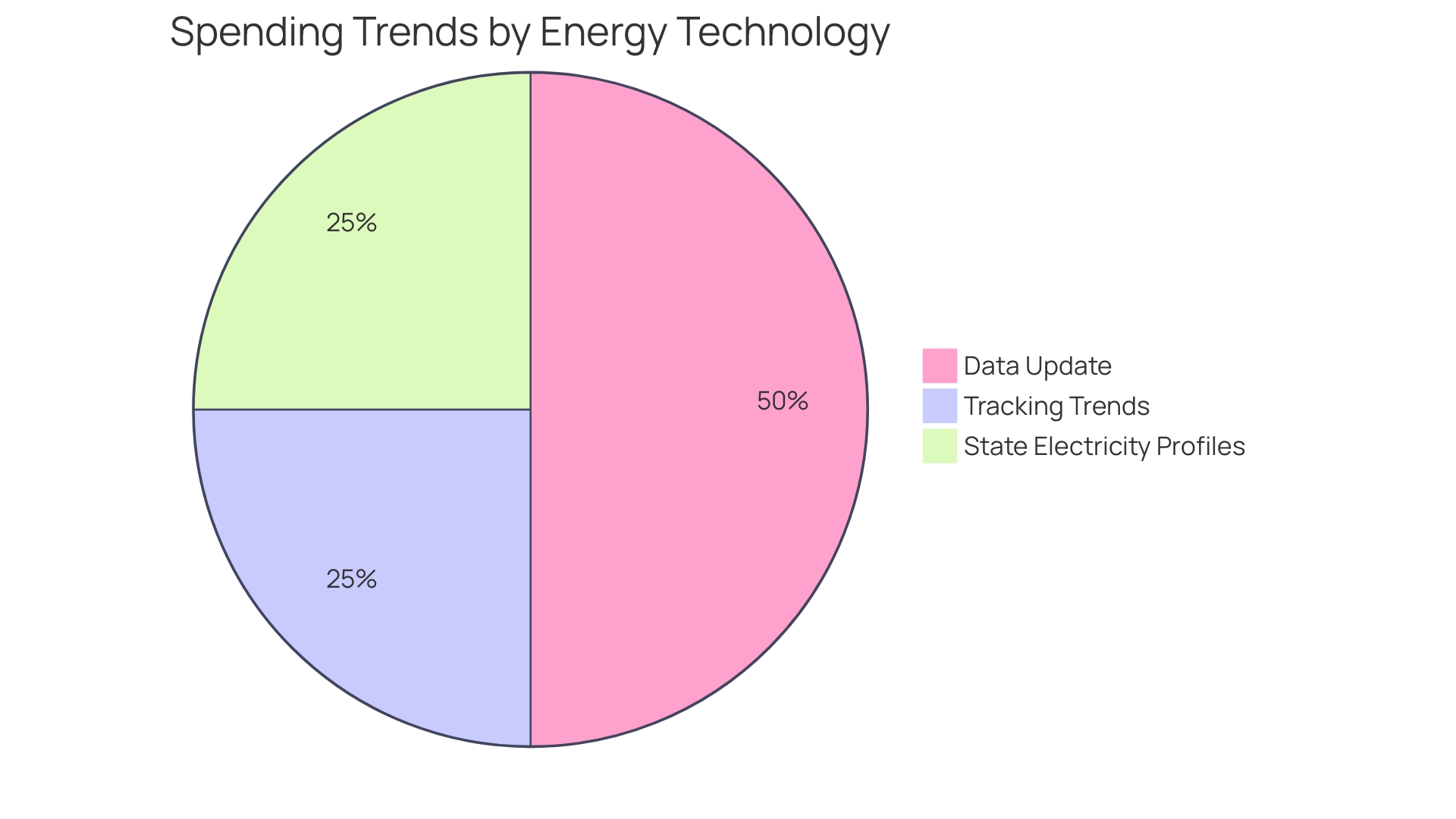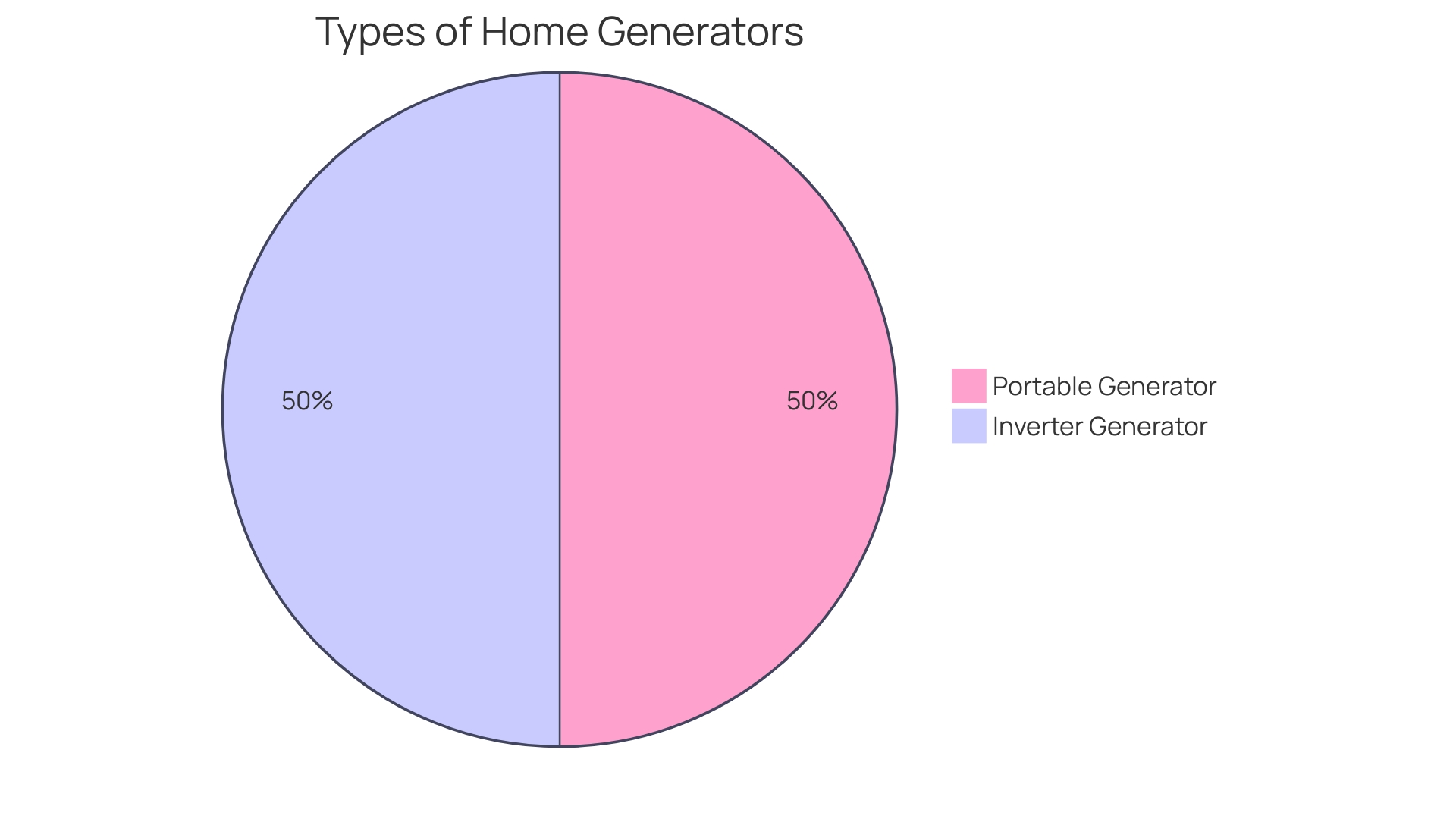Introduction
Generator rentals offer a practical and cost-effective solution for maintaining power during outages or for project-specific energy needs. They provide a versatile and scalable power source that can adapt to various tasks, from powering essential home appliances during a blackout to running heavy-duty equipment on a construction site. With the increasing risk of blackouts due to extreme weather and the aging US electric grid, generator rentals fill a market gap, allowing consumers and businesses to remain operational and productive during unforeseen power interruptions or specific project requirements.
In this article, we will explore the benefits of generator rentals, suitable applications for their use, how to choose the right generator rental, the cost savings and financial benefits, evaluating power requirements and efficiency, considerations for noise level and reliability, the convenience and flexibility of generator rentals, additional services provided by rental companies, safety protocols for generator use, and maintenance tips for an extended generator lifespan. By the end, you will have a comprehensive understanding of generator rentals and their value in addressing power challenges effectively.
Benefits of Generator Rentals
Generator rentals offer a practical solution for maintaining power during outages or for project-specific energy needs. They provide a versatile and scalable power source that can adapt to the fluctuating demands of various tasks, from powering essential home appliances during a blackout to running heavy-duty equipment on a construction site. The adaptability of generator rentals is especially valuable in light of the aging US electric grid and the increasing risk of blackouts due to extreme weather, as reported by the North American Electric Reliability Corp.
Furthermore, the cost-effectiveness of renting a generator is evident, as it circumvents the need for a hefty initial investment. This is particularly beneficial for small businesses or individuals who require a temporary power solution, allowing them to allocate their financial resources more efficiently. With the average American household consuming around 900 kWh per month, generator rentals provide a flexible option to meet these energy demands without the commitment of ownership.
In addition to financial savings, generator rentals ensure a reliable power supply, which is crucial in avoiding disruptions that can lead to losses, especially during natural disasters like the 2021 Texas winter storm. Options range from portable generators, ideal for short-term and mobile applications, to whole-home generators with higher capacity for extensive use. Portable generators are known for their impressive wattage and fuel efficiency, covering a spectrum of needs from simple lighting to powering significant equipment.
Ultimately, generator rentals fill a market gap, addressing the need for cost-efficient, temporary power solutions without the long-term commitment, allowing consumers and businesses alike to remain operational and productive during unforeseen power interruptions or specific project requirements.

Suitable Applications for Generator Rentals
Generators rentals have become indispensable in various fields, catering to the immediate power needs on construction sites, at outdoor events, during emergencies, and in off-grid locales. For construction projects, they serve as the lifeline, powering everything from hand tools to heavy machinery, ensuring that work progresses without a hitch. Events like concerts and festivals depend on generators for their lighting and sound systems, highlighting the versatility of these power sources.
In emergencies, generators stand as pillars of support for essential services, providing backup power that can make all the difference. In places far removed from the electrical grid, such as remote mining operations or film sets, generator rentals are not just useful, but necessary.
Generator rentals come in various sizes and power outputs, with the choice often dictated by the kilowatt (kW) demand of the task at hand. The average American household consumes approximately 30 kWh daily, while generators with a 20 kW capacity support whole-home requirements. Smaller generators, less than 10 kW, are ideal for lighter duties, thus offering a cost-saving advantage.
The type of fuel also influences the cost, with gasoline-powered units being the most common and affordable compared to, for example, solar battery backups.
The recent surge in the rental market, including generator rentals, is driven by a collective shift towards sustainable and financially prudent practices. Renting allows individuals to avoid the high upfront costs associated with purchasing, offering cost efficiency and flexibility. Portable generators amplify this benefit with their ease of transport, whether on wheels or handheld for smaller models, and run on various fuels, including gasoline and propane.
Inverter generators, on the other hand, provide a compact and mobile solution that's easily transportable.
The evolving landscape of the energy sector, highlighted by BP Inc.'s net-zero ambitions and the UK's record-breaking wind power achievements, underscores the importance of sustainable energy practices. Generator rentals align with this vision by offering practical, temporary power solutions without the need for long-term investment in energy infrastructure.
How to Choose the Right Generator Rental
Selecting an appropriate generator rental is a multifaceted process that requires a keen understanding of specific needs. Assessing the power output and capacity is paramount; one must calculate the wattage necessary to energize all intended devices simultaneously. Portable generators are particularly advantageous for their adaptability, capable of powering anything from minor electronics to substantial machinery, with top-tier models delivering substantial wattage and fuel efficiency.
Runtime is another crucial aspect, as some circumstances may demand continuous operation over long stretches.
Noise considerations are essential too, particularly in settings where quiet operation is valued. Moreover, the type of fuel and its efficiency can greatly influence not only the generator's performance but also the operational expenses, considering that generators run on various fuels like gasoline, diesel, propane, or have dual-fuel capabilities.
Reliability cannot be overlooked; a dependable generator rental can be the linchpin of smooth operations. With the U.S. energy grid's vulnerability to extreme weather and the potential for prolonged blackouts, having a reliable source of power becomes an essential contingency plan.
Lastly, partnering with a reputable rental company is advisable as it ensures access to high-quality equipment, comprehensive customer support, and flexible rental agreements. This becomes especially important when considering that the average American household experiences power interruptions for approximately seven hours annually, but unexpected events like the Texas winter storm of 2021 have demonstrated the need for preparedness in the face of longer outages. The right rental company can make all the difference in ensuring your power needs are met without disruption.

Cost Savings and Financial Benefits
Generator rentals provide a smart solution for both businesses and individuals by offering considerable financial benefits. Renting a generator sidesteps the hefty initial investment required to purchase one outright and negates ongoing costs like maintenance, repairs, and storage. This is particularly advantageous for short-term or one-off projects where the full power capacity of a generator is not needed long-term.
With rental agreements, costs are directly linked to usage duration, promoting precise budget management without locking into long-term financial obligations.
The cost of renting a generator is also influenced by the generator's capacity, which is measured in kilowatts (kW). For example, a whole-home generator with 20 kW capacity would be necessary to power the average American household that uses approximately 900 kWh per month. However, smaller jobs requiring less than 10 kW would result in a lower rental cost.
The choice of fuel source is another cost factor; gasoline-powered generators are more common and less expensive compared to alternatives such as solar battery backups.
In terms of financial planning, generator rentals can also provide tax advantages for businesses. Rental expenses can often be deducted as a business expense, providing an additional fiscal benefit. Considering these factors, generator rentals emerge as a cost-effective and flexible option, especially when the need for a generator is temporary or project-specific.
Evaluating Power Requirements and Efficiency
Choosing the right generator rental involves a strategic approach to power management. For instance, identifying the total wattage necessary to run your array of equipment is just the starting point. Some machines demand a surge of power to kick off, known as starting wattage, which is critical to factor into your calculations.
Efficiency is another pivotal aspect; it's not just about cost, but also about the environmental footprint. A high-efficiency generator can significantly cut fuel consumption, aligning with eco-friendly practices and shrinking operating costs. Through meticulous analysis of these elements, the chosen generator rental can fulfill your power needs in an efficient and economically sound manner.
For example, consider the case of UC Berkeley's Cogeneration Plant, which fulfills a substantial portion of the campus's energy requirements but faces the challenge of aging infrastructure and environmental concerns. Similarly, The Sinclair Hotel in Fort Worth opted to transition from diesel fuel to energy storage solutions to meet their electricity needs without compromising operational aspects such as room reservations or dining services. These instances highlight the importance of not only meeting energy demands but also adapting to innovative solutions that are both sustainable and cost-effective.
Moreover, recent industry reports and expert analyses emphasize the growing energy demands of sectors like data centers, which are increasingly becoming wary of 'stranded assets' due to their power-intensive nature. As such, power generation methods, including portable and inverter generators, are gaining attention for their versatility and mobility, offering a range of power outputs to tackle both light-duty and heavy-duty tasks. With the average household experiencing brief outages annually, and the potential for extended disruptions due to natural disasters, the reliability of a generator can be a pivotal factor in maintaining continuity.
In the end, understanding your power requirements, evaluating generator efficiency, and considering the environmental impact are all essential steps in selecting an optimal generator rental solution. Backed by statistics that reflect an increase in production efficiency and a shift towards alternative sources like wind and geothermal energy, the decision-making process for generator rental must be informed by both current needs and future sustainability.
Considerations for Noise Level and Reliability
Choosing the right generator rental involves considering the noise levels, especially for use in sensitive environments like residential areas or event venues. Low-noise generators are preferred to avoid disturbances and ensure tranquility. Reliability is equally crucial to prevent costly downtime.
Opting for a reputable rental company that provides well-maintained generators and dependable support is wise. Regular maintenance and service checks by the provider can maintain the generator's reliability and prevent unexpected failures. For example, the practice of generator polarization, as outlined in a comprehensive guide published on March 28, 2024, is an important maintenance step that helps ensure the smooth operation of generators, which are indispensable in both emergency and recreational settings.
A survey by Saint-Gobain Ecophon France highlights the significance of noise levels in social spaces, with 81% of respondents avoiding overly noisy venues. This preference extends to generator selection for events or construction sites near such areas. Moreover, the versatility of portable generators, capable of powering anything from laptops to electric heaters, makes them an asset for small businesses.
Even in the event of extended power outages, like the three-and-a-half-day blackout in Texas during the 2021 winter storm, the duration a generator can supply power is a key factor.
Investment in renewable energy, such as wind power—which represented over 7% of U.S. electricity generation in 2020 and continues to grow—emphasizes the importance of reliable and eco-friendly power solutions. While renewable energy advancements are shaping the industry, the immediate need for dependable portable power remains, making generator rentals an essential consideration for project managers in a variety of settings.

Convenience and Flexibility of Generator Rentals
Generator rentals serve as a versatile solution for diverse power needs, whether you're dealing with unexpected outages or need additional power for a project. These mobile power stations come in various forms, such as portable and inverter generators, both prized for their mobility and ease of transport. For instance, portable generators are equipped with wheels for easy movement, and some models are even compact enough to be handheld, making them perfect for on-the-go power applications.
They're commonly fueled by gasoline and cater to both light-duty tasks, such as charging devices, and more demanding applications, including running heavy machinery.
Recent trends have shown a spike in generator usage, especially during hurricane season, which spans from June through November. In these times, generators become critical for homes and businesses to maintain power amidst storms and outages. It's important to note that while generators are life-saving during emergencies, safety precautions must be observed, such as positioning them at a safe distance from enclosed spaces to avoid hazards.
In light of the increasing instances of extreme weather and the aging United States electric grid, the demand for reliable backup power solutions like home generators has intensified. When selecting a generator, factors such as the duration of power support are crucial. While the average household may only experience brief outages yearly, severe conditions can lead to prolonged periods without electricity, as witnessed during the Texas winter storm in 2021.
Rental companies cater to this growing need by offering flexible rental terms, with options for both short and long-term use, allowing consumers to scale their power requirements according to their needs without committing to a permanent investment. This approach not only saves on upfront costs but also grants access to the latest generator models and technologies, ensuring efficient and optimal performance.
Additional Services Provided by Rental Companies
Generator rental services extend far beyond just providing a temporary power solution; they encompass a suite of additional offerings designed to deliver a full-service experience. These include on-site refueling services which spare clients the hassle of fuel management and ensure an uninterrupted power supply. Regular maintenance and servicing, performed by certified technicians, play a crucial role in extending generator lifespan and reducing the likelihood of operational disruptions.
Furthermore, to address any technical challenges swiftly, providers offer dedicated technical support and emergency assistance, ensuring that expert help is just a call away in any situation. These value-added services are instrumental in providing customers with peace of mind and a smooth rental experience.
Safety Protocols for Generator Use
Ensuring safety while utilizing generator rentals is pivotal to prevent accidents and secure the health of everyone involved. Generators must be placed in open, ventilated areas to avoid the dangers of toxic fumes. Overloading generators can be hazardous, so it's critical to adhere to their specified capacities.
Grounding the generator correctly is also a key safety measure to avert electrical risks. Regular inspections to detect damage or wear and strict adherence to the manufacturer's maintenance and operational guidelines can help minimize risks and promote a secure working environment. These precautions are especially relevant in light of the CPSC's efforts to reduce consumer product-related injuries, which cost the nation over $1 trillion yearly.
During natural disasters, such as hurricanes, generators become lifelines, but safety measures, including proper placement and operation, remain paramount to prevent additional hazards.
Maintenance Tips for Extended Generator Lifespan
To maintain peak performance and elongate the service life of generator rentals, it is imperative to adhere to a meticulous maintenance regimen. Inspection is a cornerstone of this routine, involving vigilant checks for wear and ensuring fuel and oil levels, air filters, and overall cleanliness are maintained. Following the manufacturer's guidelines is equally crucial, encompassing oil changes, spark plug replacements, and battery inspections at prescribed intervals.
The importance of these measures is underscored by the advent of high-efficiency, low-emission power solutions like Bosch's solid oxide fuel cell (SOFC) system, which couples a remarkable 60% electrical efficiency with the advantages of a digital twin for monitoring and optimization over the system's lifetime.
Just as the digital twin aids in the SOFC system's maintenance, generator service professionals play a key role in preemptive care, addressing issues before they escalate and ensuring that the equipment functions reliably when needed. With the energy landscape evolving and the reliability of the aging electric grid being tested by extreme weather, the continuous operation of generators becomes ever more critical, as evidenced by the prolonged outages during the Texas winter storm of 2021. The ability to maintain generators in prime condition not only provides peace of mind but also ensures that they are ready to deliver power seamlessly during unpredictable and extended blackouts.

Conclusion
Generator rentals offer a practical and cost-effective solution for maintaining power during outages or project-specific energy needs. They provide versatility and scalability, adapting to various tasks from powering essential home appliances during blackouts to running heavy-duty equipment on construction sites. With the increasing risk of blackouts due to extreme weather and the aging US electric grid, generator rentals fill a market gap, allowing consumers and businesses to remain operational and productive during unforeseen power interruptions.
Suitable for diverse applications, generator rentals are indispensable on construction sites, at outdoor events, during emergencies, and in off-grid locales. They serve as a lifeline, powering everything from hand tools to heavy machinery, ensuring work progresses smoothly. Generator rentals come in different sizes and power outputs, catering to both light-duty and heavy-duty tasks.
Choosing the right generator rental involves assessing power output, runtime, noise levels, fuel type, and reliability. Partnering with a reputable rental company provides access to high-quality equipment, comprehensive customer support, and flexible rental agreements, ensuring smooth operations in the face of power interruptions.
Generator rentals offer significant cost savings by eliminating the need for upfront investment, ongoing maintenance costs, and storage. Rental expenses can often be deducted as a business expense, providing additional financial benefits. The choice of generator capacity and fuel source also affects rental costs.
Safety is paramount when using generator rentals. They should be placed in open, ventilated areas, and their specified capacities should not be exceeded. Regular inspections, adherence to maintenance guidelines, and following safety protocols minimize risks and promote a secure working environment.
In conclusion, generator rentals are a practical and cost-effective solution for maintaining power during outages or project-specific energy needs. They offer versatility, scalability, and cost savings, making them invaluable for both individuals and businesses. By considering power requirements, efficiency, noise levels, reliability, and safety, informed decisions can be made when selecting the right generator rental.
Generator rentals provide convenience, flexibility, and financial advantages, addressing power challenges effectively in various situations.




